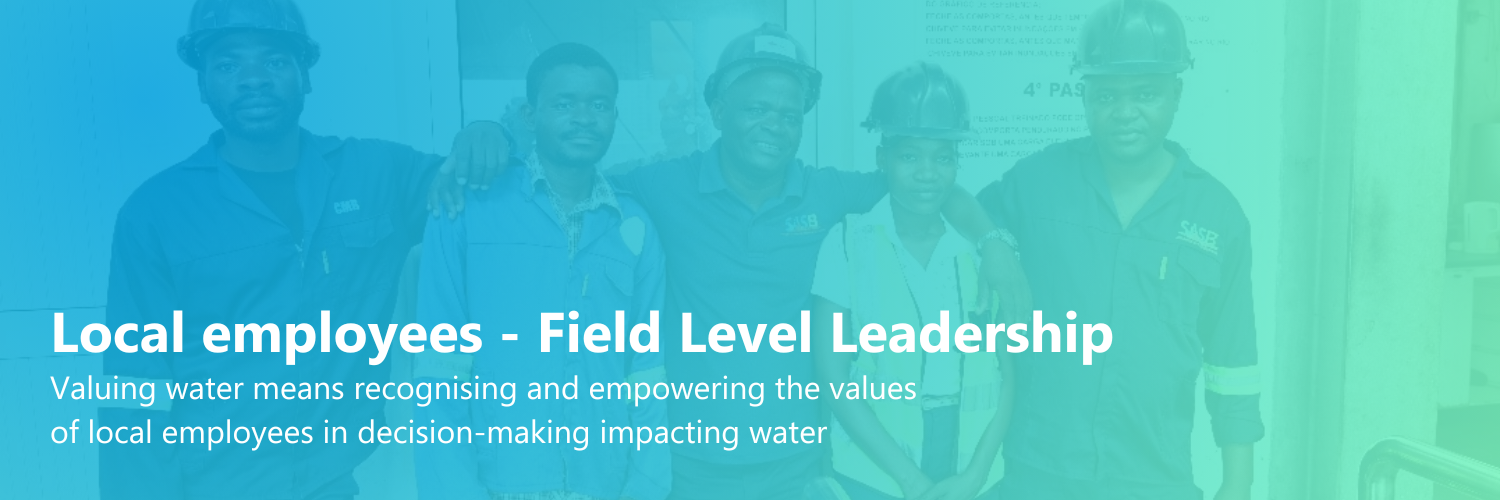
VWI is contributing to better decisions impacting water by recognising and empowering the values of local employees in decision-making processes impacting water, as enshrined in the five Valuing Water Principles.
Aim
VWI aims to recognize and empower the values of local employees in decision-making impacting water. We strive towards actions for inclusive participation and ownership to bring systemic change in the way water is valued, understood and managed, by as was recommended by the United Nations Secretary-General and the World Bank Group President. We work with the Field Level Leadership program to recognise and empower local employees to foster a sense of ownership and creativity among the staff, as they are in the best position to understand and address the specific values and needs of their community.
Field Level Leadership
Field-level Leadership (FLL) is a values-driven change management approach that mobilizes broad cadres of change leaders across the ranks of public agencies. The FLL program is an initiative designed to stimulate innovation and problem-solving among local employees. VWI has supported the implementation of FLL in the Beira Autonomous Sanitation Unit (SASB) in Mozambique. Find more information on Field Level Leadership here: Field Level Leadership : Motivation to Serve – A guide to FLL and Implementation (worldbank.org)).
Expected Outcomes
The main outcomes of this FLL program are:
• Induced individual change: Participants experience personal development, leading to enhanced problem-solving skills and a proactive mindset.
• Improved team connectivity and trust: The program helps build trust and a sense of community among team members, fostering a supportive work environment.
• Developed team spirit: Civil servants develop a strong team identity, understanding each other’s strengths, which helps in creating a unified approach to problem-solving.
• Enhanced focus on teamwork: Participants become more aware of the importance of working collaboratively, which is essential for effective service delivery.
• Motivated implementation of team plans: Civil servants are encouraged to create and execute team plans that address the specific needs and challenges of their departments.
• Empowered participants: The program empowers civil servants by giving them a voice in the organization, reducing hierarchical barriers, and fostering a sense of belonging and significance within the team.
We value our collaboration with





